 by Terry Roland
by Terry Roland
The Richie Furay Band’s brief February tour through Southern California was important for this veteran country-rock artist. His last time around was with his old bandmates Neil Young and Stephen Stills on their long-awaited Buffalo Springfield reunion tour. While most of the audiences who attended the Springfield shows in California were familiar with Stephen Stills of Crosby, Stills and Nash fame and the iconic Neil Young, fewer have had the chance to hear Furay in the years since the band’s demise.
For the audience, it was a reminder of his considerable contributions to the legendary band. Fewer still realized that he was a co-founder(along with Jim Messina) of the band Poco, which helped to define country-rock even before they had a string of soft-rock hits in the late ’70s and ’80s.
If the Feburary 3rd concert, the final show of the tour in San Juan Capistrano at The Coach House, was any indication, the summer Buffalo Springfield tour paid off, as the Richie Furay Band played to a capacity audience. The show was dynamic, energetic and fresh. With his band, including Scott Selen on lead guitar(and a near orchestra of other instruments), Selen’s son, Aaron on bass, Alan Lemke on drums and Jesse Lynch on background vocals, Richie delivered a strong set of songs spanning 40 years.
Opening with the familiar Buffalo Springfield classic “On My Way Home,” he also faithfully recreated a trilogy of Neil Young’s songs he originally recorded on the first Springfield album. The first two songs, “Do I Have To Come Right Out and Say It,” and “If Flying on the Ground is Wrong,” were a reminder of how good Young’s quirky lyrics sound with Furay’s distinctive voice. Young’s “Nowawdays Clancy Can’t Even Sing” was stunning, with an arrangement and lead guitar work by Scott Selen that did Neil proud, and matched the duet Furay performed with Young during last summer’s tour.
The set included a strong sampling of early Furay/Messina Poco. As conceived by the two former members of Buffalo Springfield, Poco was an energetic, passionate and dynamic band that pushed country-rock to its limits during their heyday in the late ’60s and early ’70s, when Furay left the band.
The band missed his energetic presence, but went on to a string of commercial successes with soft, breezy and sometimes overproduced pop music. At this concert, Furay conjured up that original sound and reminded us all where it all began. This is not easy. While Poco always had at least two and sometimes three instrumentalists playing off each other, Furay’s band today relies on virtuoso Selen alone. He recreates the sound of Jim Messina’s distinctive electric guitar leads, Rusty Young’s frenetic steel guitar riffs and even throws in an occasional banjo, acoustic guitar and keyboard when needed.
During the show this musical chemistry hit the mark with Furay’s song
dedicated to Gram Parsons, “Crazy Eyes.” During the course of this 12-
minute opus, Selen moved from instrument to instrument as the music
flowed through its various tempos and changes, the musical equivalent
of a triathlon. The live performance eclipsed the original recording,
with a sense of soul and urgency, immediate and bittersweet. Trading
vocals with his daughter Jesse, Richie revisited the song he wrote
as a way of reaching out to Parsons and which was released
days before Parsons died. It ends in sad, but knowing resignation with the line, ”Crazy eyes, you’re as blind as you can be.” As presented live with this band, it is a masterful, and soulful statement about the loss of a friend to addiction.
What became clear during the two-hour set is that Richie Furay is a soul singer. Whether he sings an original gospel song like “Rise Up,” or his new song to his wife of 45 years, “Still Fine,” he gives every song his whole heart.
Richie has a unique and distinctive voice and in live performance infuses every lyric with a feeling that often transcends and raises each song to a new level.
After a standing ovation and encore of “Kind Woman” slowed down to a blue-eyed soul pace, Richie Furay seemed much younger than his years. Indeed, the musical future remains bright for this country-rock innovator, with or without a call from Neil Young.
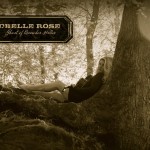 By Ken Paulson
By Ken Paulson
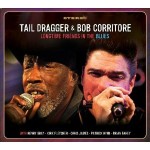 By Joe Ross
By Joe Ross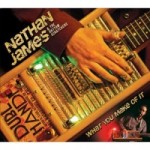 By Joe Ross
By Joe Ross Lyle Lovett’s Release Me shot to the top of the
Lyle Lovett’s Release Me shot to the top of the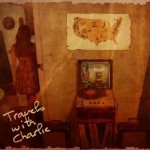 By Ken Paulson
By Ken Paulson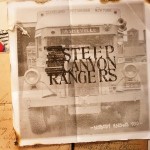
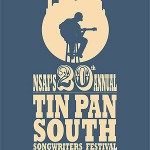 Tin Pan South, the pre-emiment songwriters festival, has just released its line-up for the 2012 event scheduled for March 27-31. It’s a wide-ranging collection of talent, spead over ten venues. Attendees can pay cover at the door or buy a weeklong pass that offers preferred access.
Tin Pan South, the pre-emiment songwriters festival, has just released its line-up for the 2012 event scheduled for March 27-31. It’s a wide-ranging collection of talent, spead over ten venues. Attendees can pay cover at the door or buy a weeklong pass that offers preferred access.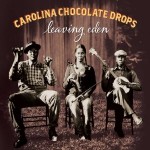 The top three positions on the
The top three positions on the 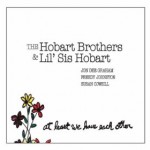
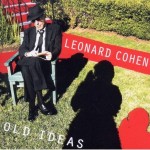 By Bruce Rosenstein
By Bruce Rosenstein Darrell Scott’s Long Ride Home moves into the top spot on the Americana music
Darrell Scott’s Long Ride Home moves into the top spot on the Americana music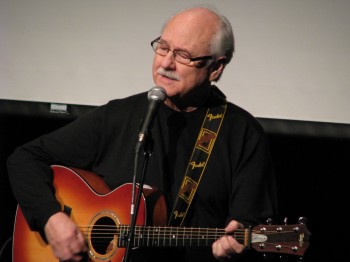
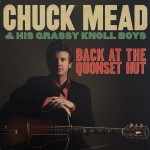 They don’t make elections this close: The top 3 slots on this week’s Americana Music
They don’t make elections this close: The top 3 slots on this week’s Americana Music  by Terry Roland
by Terry Roland 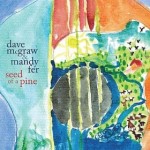 By Joe Ross
By Joe Ross 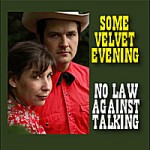 By Joe Ross
By Joe Ross